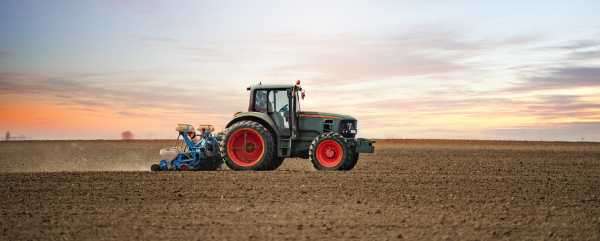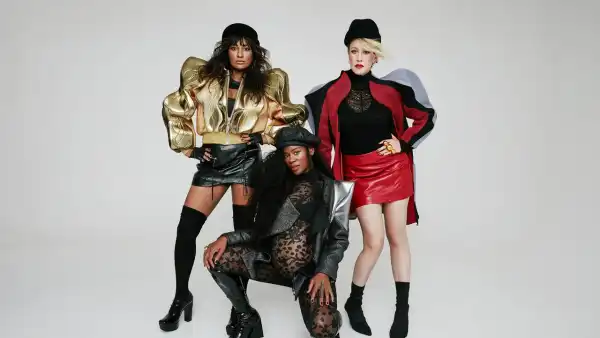
In 1933, one out of every four Americans worked on a family farm. Stuart Chase, the economist who coined the phrase “New Deal,” credited these folks with seeing us through the Great Depression. “When the books won’t balance,” said Chase, “he has only to throw them out the window and go pick some peas.”
And today? According to those poets at the Bureau of Labor Statistics, “agriculture self-employed” accounts for just half a percent of the workforce. Manufacturing makes up another 8 percent. For comparison, about one in ten Americans work in retail.
Advertisement
Pea-pickers are going the way of the dodo. And that might be okay—until it’s not.
Even now, many of us are getting our first real taste of scarcity. I remember going to Walmart in 2020 and seeing the meat department completely barren; we ate tinned beef and salmon for weeks. Poor mothers are still getting hit hard by formula shortages. Fertilizer shortages are expected to send shockwaves through the global market. Grain shortages in Europe may do the same.
Even if the U.S. could produce enough food to be self-sufficient, which we could, most of our staple crops are grown out West. Meanwhile, at any given moment, grocery stores in New York City only have about a week’s worth of food in stock. If our oil supply were to fail, all the tractors would shut down. Crops would rot in the field. Then the transportation industry would collapse. So, even if we could still grow enough food then, which we couldn’t, we would have no way of getting that food to our major population centers.
Now, if economists on the putative left and right can agree on anything, it’s that the family farm is redundant; small-scale agriculture is inefficient and unsustainable.
Again, that might be true—until it’s not. Because someday the books won’t balance. And when they don’t, 80 percent of the country won’t have any peas to pick.
Advertisement
Economists say we can’t afford to keep our family farms. I say we can’t afford to lose them. Conservatives love to wax romantic about the American yeoman. I certainly do! Yet the main argument for agrarianism is strictly pragmatic. We have to be able to feed our citizens—or, rather, our citizens have to be able to feed themselves. And, right now, we can’t.
That is the most urgent economic crisis in America today. It may not seem like it, because the supply chain hasn’t collapsed, and the markets haven’t crashed. But if they do, the United States will become a third world country overnight.
Yes, we’ve been awfully clever. Just over 2 million people work to feed a country of just under 330 million. That’s impressive. And I’m sure someone will point out that, while many farmers have been forced off their land, many more have chosen to leave. They go off to the towns and cities, searching for more money and an easier life. Who can blame them? Farming is hard.
Here is the thing, though: at no point did we stop needing that broad agrarian base. Sure, we may not need it right now. But that is like quitting your job because you got a credit card.
Right now, the United States is living off its credit card. That’s literally true, given our massive national debt. But we also don’t have real jobs—ones that generate real wealth, like food and clothing and shelter. We just have a lot of bullsh*t jobs, and they are not the same thing.
Look at the Forbes rich list. The wealthiest people in the country work in tech, finance, and retail. None of them are even tangentially involved in producing real goods. The only exception is Elon Musk, and even he can’t eat a Tesla.
Honestly, it feels a little insane even talking about “the U.S. economy.” We don’t have an economy. We have a couple of guys in Indiana driving John Deeres. The rest of us are just waiting tables, sending emails, and delivering Stranger Things Funko Pops to people who wait tables and send emails. It’s not real. None of it is real.
That is stupid. What makes it insane, too, is that there are lots of young people who would love to move out of the city, build a little homestead, and pick peas. They can’t, though, because all of our arable land is getting bought up by Bill Gates and Xi Jinping. American capitalists and Chinese communists are working together to ensure that we remain utterly dependent on big business and big government.
Those men are evil, but they are also clever. Gates is buying up land for the same reason he didn’t let his kids use cell phones. He made a fortune selling us poison; now he’s spending it on milk and honey. It is technocracy for the poor and physiocracy for the rich.
There are plenty of ways to make land more affordable for ordinary Americans. Some would require government intervention; some wouldn’t. But the main hurdle is convincing 25 percent of the country to embrace land work.
On the one hand, that is a pipe dream. On the other, it is our only chance of making it through another depression. So, we probably won’t. When the United States falls apart, it will be for nothing more than laziness and lack of foresight. The republic will die on a mountain of iPhones and Hydro Flasks and polyester.
The good news is that many millions of Americans are already capable of surviving a depression. You can join them. All you have to do is buy an acre of land somewhere in the country. Choose a state with low property taxes, preferably one that respects your Second Amendment rights. Buy a couple of books on practical homesteading, like Jean-Martin Fortier’s The Market Gardener and Joel Salatin’s Polyface Micro. Then get to work.
This may sound like prepper stuff. Maybe it is. But I think there is one key difference: this isn’t just about self-preservation. You wouldn’t only be helping yourself and your family. You would also be helping your country.
Subscribe Today Get weekly emails in your inbox Email Address:
Thomas Jefferson was right. More than anyone else, farmers are “tied to their country and wedded to its liberty and interests by the most lasting bonds.” So was George Washington when he said that, “with reference either to individual or national welfare, agriculture is of primary importance.”
The United States is a yeoman republic, as much as a commercial one. That is our history, and it is glorious. But it is also our future, if we’re to have any future at all.
Farm or die. The choice is yours, until it isn’t.
Advertisement
Sourse: theamericanconservative.com






